7 Foods to Help You Sleep Better Tonight
Amy Lawson MS, RD, LDN
- Published On
- in Blog

Did you know that about one-third of Americans aren’t getting the recommended 7-9 hours of sleep each night? Poor sleep is linked to increased risks of heart disease, obesity, and type 2 diabetes, which makes it so key to prioritize sleep.
While there are many ways to improve your sleep—like exercising and reducing screen time at night—this post is all about nutrition! Let’s dive into the key nutrients that promote better sleep and discover seven foods that can help you get a good night’s rest.
Key Nutrients for Sleep
Certain nutrients and compounds in our food can really help our sleep quality and quantity. Here are some of the sleep-enhancing all-stars to know:
Melatonin: A hormone that directly regulates our sleep-wake cycle.
Serotonin: This neurotransmitter plays a critical role in establishing our sleep patterns.
Tryptophan: This essential amino acid helps produce serotonin and melatonin, hormones that regulate our sleep-wake cycle. Pairing carbohydrates with tryptophan-rich foods can enhance melatonin production.

Magnesium: This mineral can help reduce stress and boost melatonin production.
Vitamin D: Important for the synthesis of melatonin.
Zinc: Supports the conversion of tryptophan into serotonin and melatonin.

7 Sleep Boosting Foods
Kiwi
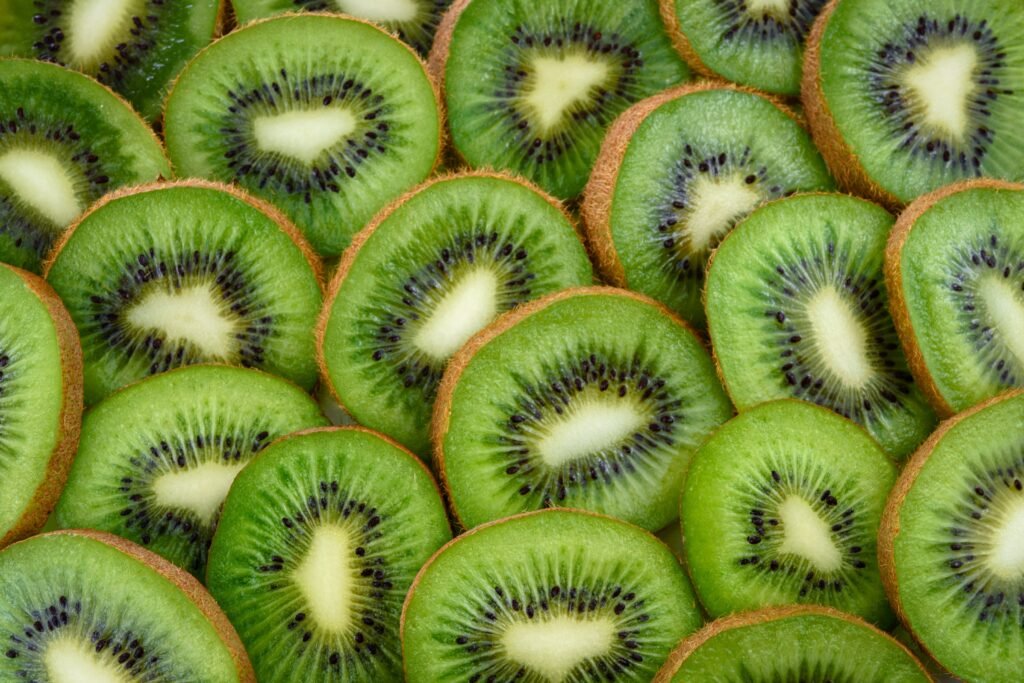
Kiwi is often overlooked but is a powerful sleep aid! Rich in melatonin, studies show that eating two kiwis an hour before bed for four weeks can significantly improve sleep quality. A study on adults with sleep disorders found improvements in total sleep time and how quickly they fell asleep.
Salmon
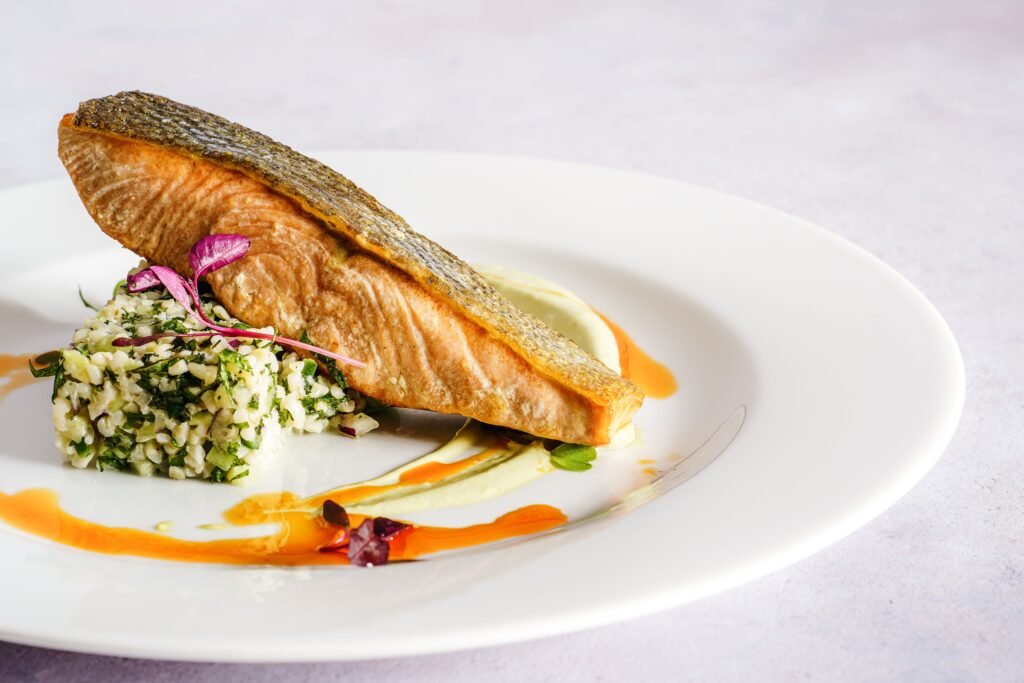
Not only is salmon known for its heart and brain health benefits due to omega-3 fatty acid content, but its vitamin D content also plays a vital role in enhancing sleep quality. Men who consumed salmon three times a week reported falling asleep faster and enjoying better sleep quality.
Walnuts
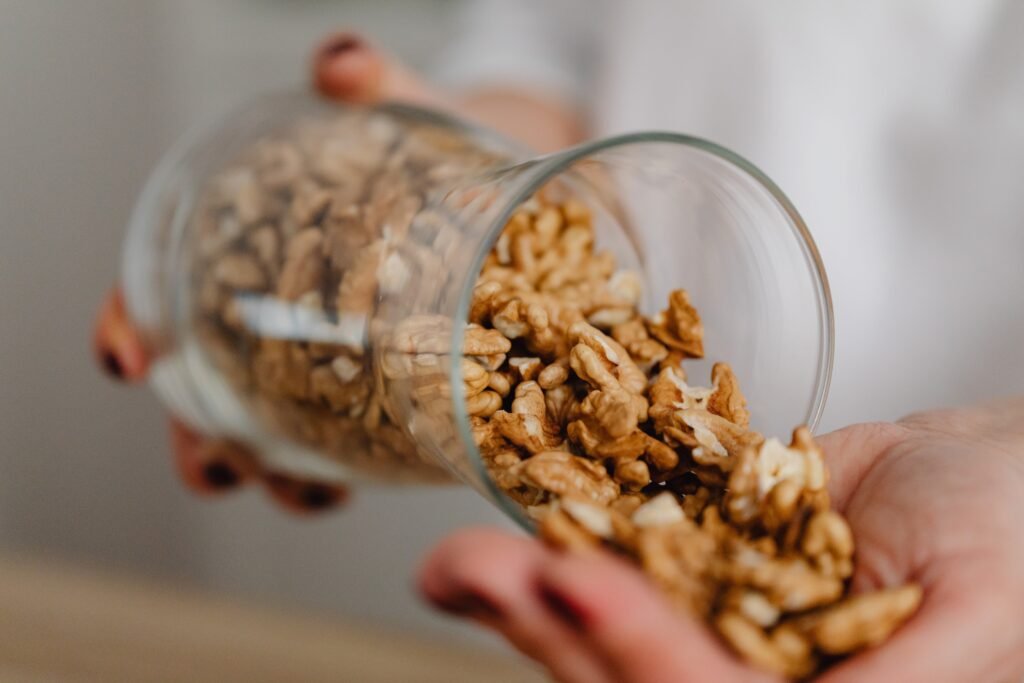
Walnuts pack a trifecta of sleep-promoting nutrients: melatonin, serotonin, and magnesium. Plus, the alpha-linolenic acid (ALA) in walnuts can be converted to DHA, which further boosts serotonin production.
Pumpkin Seeds

Small but mighty, pumpkin seeds are rich in tryptophan, magnesium, and zinc. Just 100 grams can provide a hefty dose of these sleep-enhancing nutrients.
Dark Greens

Leafy greens are not just good for your health; they also support better sleep. The magnesium and calcium in these veggies work together to enhance sleep duration and quality.
Almonds
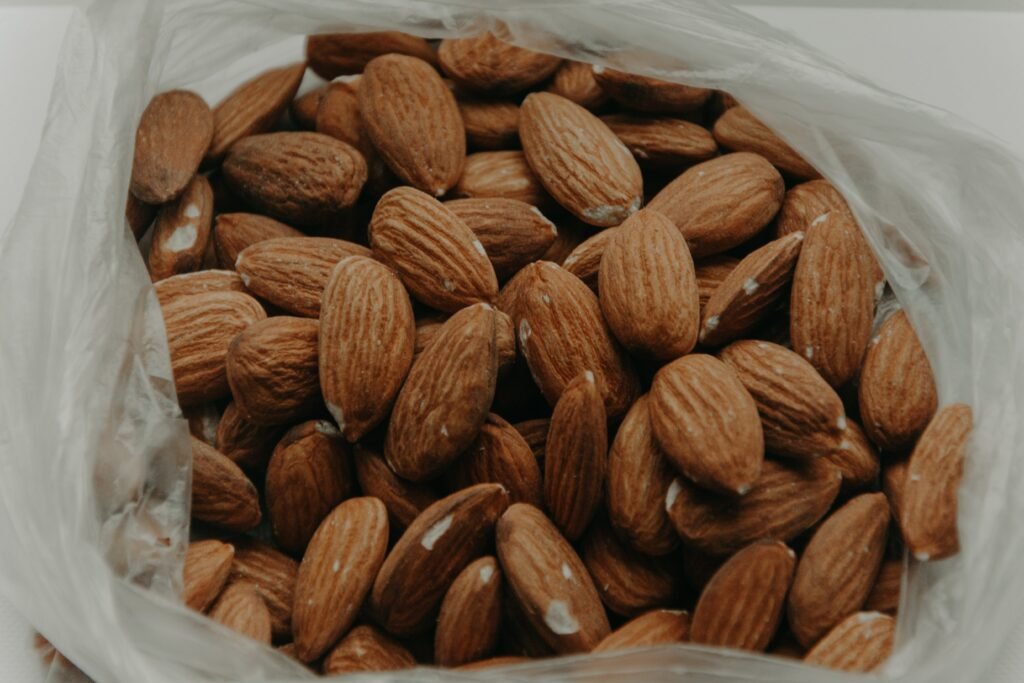
Almonds are another excellent source of magnesium, which can help calm your mind and body before bed. With 77mg of magnesium and 76mg of calcium per ounce, they’re perfect for an evening snack.
Try making your own trail mix with almonds, walnuts, pumpkin seeds, and a few dark chocolate chips for a tasty treat!
Chickpeas
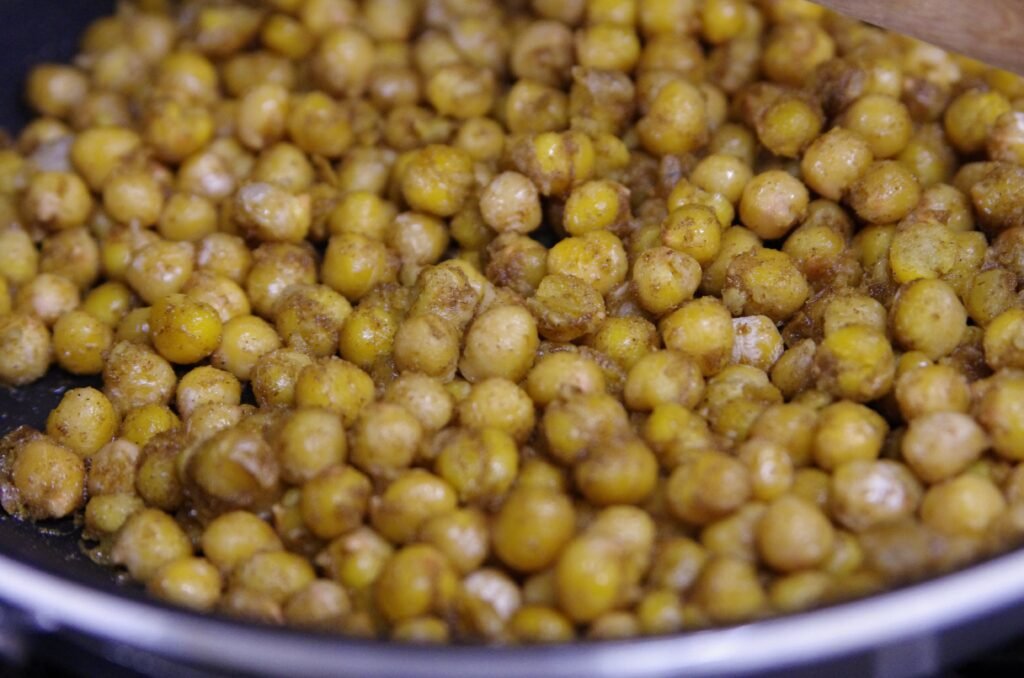
Rich in vitamin B6 and tryptophan, chickpeas also provide a good amount of magnesium. One cup contains about 230mg of magnesium, making them a great bedtime snack. Try roasting them for a crunchy, sleep-promoting treat.
Foods to Avoid for Better Sleep
While incorporating sleep-friendly foods is essential, it’s equally important to avoid certain items that can negatively impact your rest:
Alcohol: Alcohol may seem like a relaxant, but it actually reduces sleep quality and increases disturbances during the night. Avoid it close to bedtime for a more restful sleep.
Caffeine: While coffee can be a comforting morning ritual, consuming caffeine in the afternoon or evening can really mess with your sleep at nighttime. Caffeine can stay in your system for several hours, so try to keep your cup of joe to the morning only.
Thrive's Final Thoughts on Foods for Sleep
Incorporating these foods into your daily routine can make a big difference in your sleep quality. Also, keep in mind that eating a diet rich in whole foods, fruits, vegetables, legumes, whole grains, nuts, and seeds will provide the key nutrients your body needs for optimal sleep.
Listen to your body’s cues: if you find yourself hungry before bed, opt for a light, satisfying snack like yogurt with granola or a simple turkey sandwich on whole grain bread. Do you need to eat before bed for good sleep? It depends! While eating right before bed isn’t necessary for everyone, it’s about finding what works best for you.
Want to dive a little deeper? Watch my video for a deep dive on foods for better sleep!
References:
Arab, A., Rafie, N., Amani, R., & Shirani, F. (2023). The Role of Magnesium in Sleep Health: A Systematic Review of Available Literature. Biological Trace Element Research, 201(1), 121–128. https://doi.org/10.1007/s12011-022-03162-1 Del Brutto, O. H., Mera, R. M., Ha, J., Gillman, J., Zambrano, M., & Castillo, P. R. (2016). Dietary fish intake and sleep quality: A population-based study. Sleep Medicine, 17, 126–128. https://doi.org/10.1016/j.sleep.2015.09.021 Doherty, R., Madigan, S., Nevill, A., Warrington, G., & Ellis, J. G. (2023). The Impact of Kiwifruit Consumption on the Sleep and Recovery of Elite Athletes. Nutrients, 15(10), 2274. https://doi.org/10.3390/nu15102274 Hansen, A. L., Dahl, L., Olson, G., Thornton, D., Graff, I. E., Frøyland, L., Thayer, J. F., & Pallesen, S. (2014). Fish consumption, sleep, daily functioning, and heart rate variability. Journal of Clinical Sleep Medicine: JCSM: Official Publication of the American Academy of Sleep Medicine, 10(5), 567–575. https://doi.org/10.5664/jcsm.3714 Kikuchi, M., Aoki, Y., Kishimoto, N., Masuda, Y., Suzuki, N., Takashimizu, S., Yoshida, K., Aizawa, K., Suganuma, H., & Nishizaki, Y. (2021). Effects of glucoraphanin-rich broccoli sprout extracts on sleep quality in healthy adults: An exploratory study. Journal of Functional Foods, 84, 104574. https://doi.org/10.1016/j.jff.2021.104574 Lin, H.-H., Tsai, P.-S., Fang, S.-C., & Liu, J.-F. (2011). Effect of kiwifruit consumption on sleep quality in adults with sleep problems. Asia Pacific Journal of Clinical Nutrition, 20(2), 169–174. Patan, M. J., Kennedy, D. O., Husberg, C., Hustvedt, S. O., Calder, P. C., Middleton, B., Khan, J., Forster, J., & Jackson, P. A. (2021). Differential Effects of DHA- and EPA-Rich Oils on Sleep in Healthy Young Adults: A Randomized Controlled Trial. Nutrients, 13(1), 248. https://doi.org/10.3390/nu13010248 Ros, E., Izquierdo-Pulido, M., & Sala-Vila, A. (2018). Beneficial effects of walnut consumption on human health: Role of micronutrients. Current Opinion in Clinical Nutrition & Metabolic Care, 21(6), 498–504. https://doi.org/10.1097/MCO.0000000000000508 Wilson, V. C. (1969). The distribution of acetylcholinesterase in adult Hymenolepis spp. Transactions of the Royal Society of Tropical Medicine and Hygiene, 63(4), 428. Zuraikat, F. M., Wood, R. A., Barragán, R., & St-Onge, M.-P. (2021). Sleep and Diet: Mounting Evidence of a Cyclical Relationship. Annual Review of Nutrition, 41(1), 309–332. https://doi.org/10.1146/annurev-nutr-120420-021719

